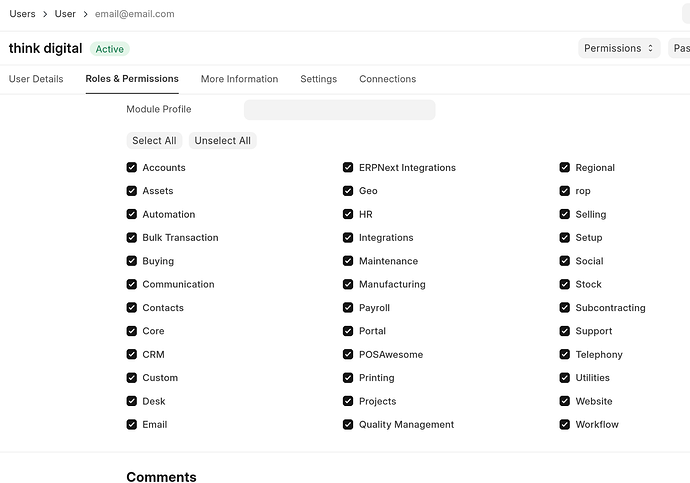Greetings
I am new here and want to deploy ERPNext for our organization. I was following up on the documentation on GitHub, and I am a bit confused about which deployment option I should choose.
Here is a question I have,
-
Following the container installation guide,
git clone https://github.com/frappe/frappe_docker
cd frappe_docker
docker compose -f pwd.yml up -d
I have successfully installed and started ERPNext, but the guide says this is for development purposes. Can I use it for production?
-
I only wanted to enable specific modules such as HRMS, Support, Warehouse, and Website. Do I need to build a custom image for this? Secondly, can I add another module in the future through bench utility or do I need to rebuild the image again?
-
I am using Fedora Linux, where do I find frappe-bench to execute the bench command?
-
Does ERPNext support backup and restore?
Thank you
@thinkdigital thank you brief explanation.
Since I am not on supported Linux distro (Fedora) Docker is my option.
- Modules and additional apps
ERPNext comes with a full suite of modules included by default, which can be viewed here.
There are also many marketplace apps available, like HRMS and HelpDesk, which you can explore here.
Note that using these marketplace apps with Docker will require a custom image; more information on this is available here.
As I stated above, I only wanted to use HRMS, Website, Support, Inventory and Fleet Management. So as you mentioned I need to build a custom image right?
ERPNext is an application composed of multiple modules, including:
- Accounts
- Assets
- Automation
- Bulk Transaction
- Buying
- Communication
- Contacts
- Core
- CRM
- Custom
- Desk
- Email
- ERPNext Integrations
- Geo
- HR
- Integrations
- Maintenance
- Manufacturing
- Payroll
- Portal
- Printing
- Projects
- Quality Management
- Regional
- Selling
- Setup
- Social
- Stock
- Subcontracting
- Support
- Telephony
- Utilities
- Website
- Workflow
You can enable or disable specific modules from the Roles & Permission page.
In addition to ERPNext, other applications, such as Frappe HR, POS Awesome, and Frappe CRM, are available and require separate installation.
Certain features, like CRM and HR, are available as modules within ERPNext (e.g., ERPNext CRM and ERPNext HR) and as standalone apps (e.g., Frappe CRM and Frappe HR). These apps often offer richer functionality and a more modern user interface tailored to specific roles, highlighting a trend toward specialized solutions.
For a full list of available apps, visit the Frappe Cloud Marketplace.
- The ERPNext CRM module is built using Frappe framework technology (More info).
- The Frappe CRM app is developed with Frappe UI and Vue.js technology (More info).
1 Like
Hello @thinkdigital
Thank you so much for clarifying this for me. Now I understand that some standalone apps need to be installed alongside ERPNext.
Since I am on Fedora OS, which deployment method is easier for production?
- Containerized or
- Manual installation with bench ?
